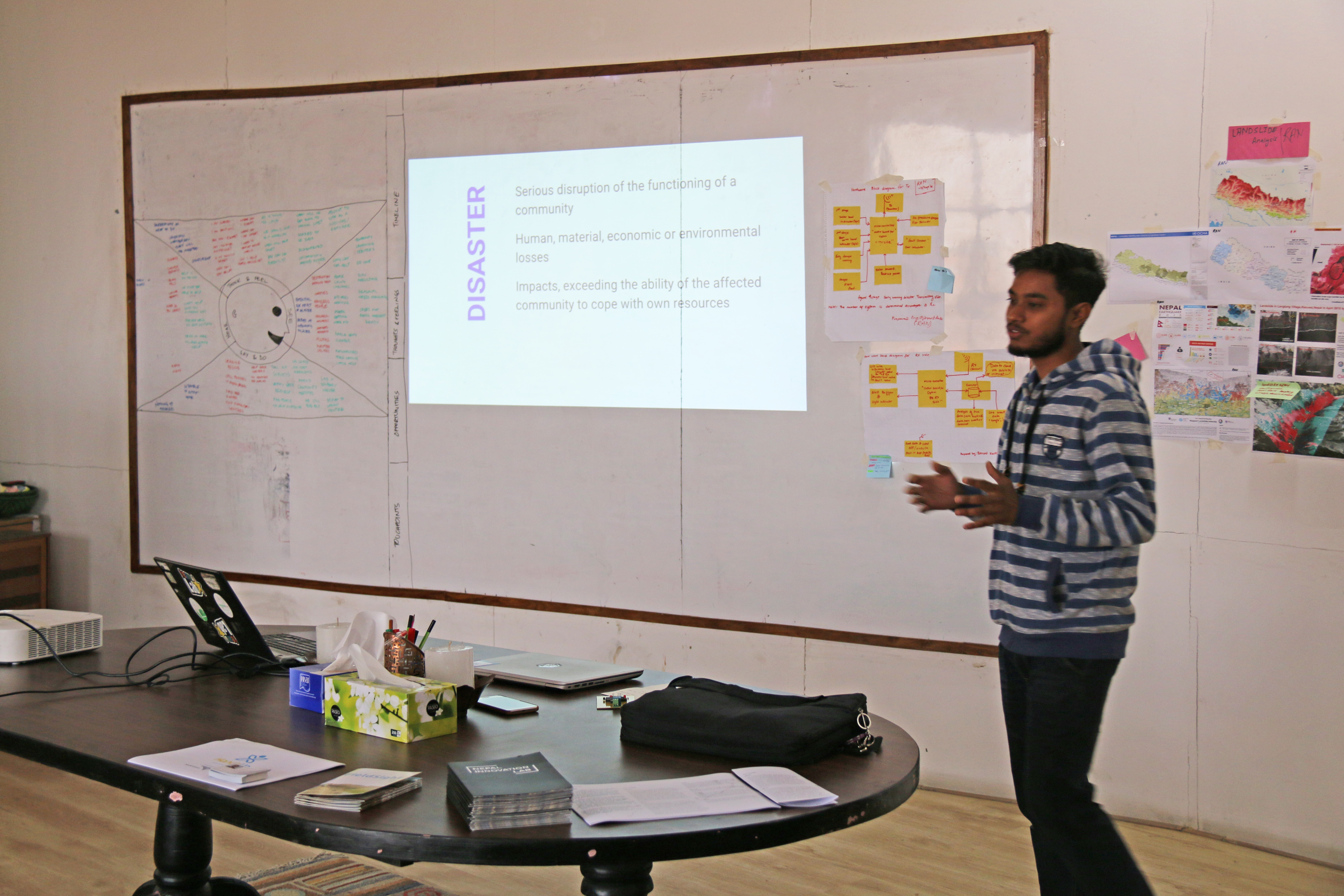Exploring ideas for an early warning system
Early warning system is a major element of disaster risk reduction. Early action can often prevent a hazard turning into a human disaster by preventing loss of life and reducing the economic and material impacts.
As a part of Nepal Innovation Lab's Explore Ideas programme, the Robotics Association of Nepal (RAN) did a research and prototyping on Early Warnings System in Kathmandu.
On October 21 they presented their end product in a formal setting hosted by the Lab involving diverse audience which includes humanitarian workers, students and tech enthusiasts.
Vikrant Karki, Under Secretary at RAN, explained during the programme how they have specifically worked on the application of machine learning to predict floods. Being a low cost system which can be rolled out easily, he claims it has tremendous potential not only in Nepal but all around the globe. The result of the research is an algorithm and flow of software and hardware design. This idea is both innovative and humanitarian-focused as the findings from this research could be implemented to alert people prior to the impact which can be helpful in saving lives.
Nepal Innovation Lab has launched the Explore Ideas programme - which supports individuals or organisations to pursue a one-month period of rapid exploration of a problem area, learning and prototyping to validate early concepts, and the development a robust proposal for a solution that can be taken forward. Participants finish the month by preparing a report of key learnings, delivering a workshop to share the results with stakeholders, and where appropriate - submitting a further proposal to the Lab to further pursue the project.
Nepal Innovation Lab, established as part of World Vision lnternational Nepal Earthquake Response, is a place for new ideas, products, technologies, and processes to be developed and tested towards the goal of achieving breakthroughs in disaster response, both for Nepal's recovery from earthquake and for the humanitarian sector more generally.
